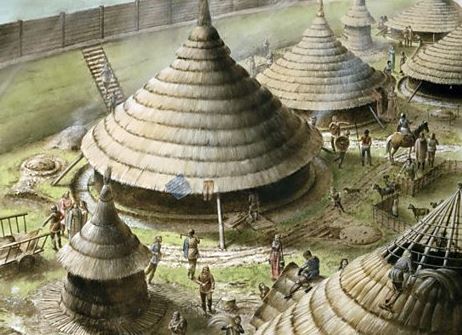2nd millennium
Posted by OnlineNigeria.com on
About Nigeria
Constitution of the Federal Republic of Nigeria 1999
National Identity
National Security
Foreign Relations
Electoral Procedure
Ministries
States
States
Federal
Ministry of Agriculture and Water Resources
Colleges
Ministry of Commerce and Industry
Ministry of Culture, Tourism and National Orientation
Federal Ministry of Defence
Ministry of Education
Ministry of Energy
Federal Ministry of Environment
Federal Capital Territory Administration (Presidency)
Federal Ministry of Finance
Ministry of Foreign Affairs
Federal Ministry of Environment
Ministry of Health
Ministry of Information and Communications
Federal Ministry of Interior
Federal Ministry of Justice
Ministry of Labour
Mines and Steel Development
National Planning Commission (Presidency)
National Sports Commission (Presidency)
Ministry of Science and Technology
Ministry of Women Affairs

The 2nd millennium encompasses the High Middle Ages, the Renaissance, the Early Modern Age, the age of Colonialism, industrialization, the rise of nation states, and culminates in the 20th century with the impact of science, widespread education, and universal health care and vaccinations in many nations. The centuries of expanding large-scale warfare with high-tech weaponry (of the World Wars and nuclear bombs) are offset by growing peace movements from the United Nations, the Peace Corps, religious campaigns warning against violence, plus doctors and health workers crossing borders to treat injuries and disease and the return of the Olympics as contest without combat.
Scientists prevail in explaining intellectual freedom, and new technology is developed by governments, industry, and academia across the world, with education shared by many international conferences and journals. The development of movable type, radio, television, and the Internet spread information worldwide, within minutes, in audio, video, and print-image format to educate, entertain, and alert billions of people by the end of the 20th century.
From the 16th century, humans migrated from Europe, Africa Asia to the New World, beginning the ever-accelerating process of globalization. The interwoven international trade led to the formation of multi-national corporations, with home offices in multiple countries. International business ventures reduced the impact of nationalism in popular thought.
The world population doubled over the first seven centuries of the millennium, (from 310 million in AD 1000 to 600 million in AD 1700), and later increased tenfold over its last three centuries, exceeding to 6 billion in AD 2000.
Scientists prevail in explaining intellectual freedom, and new technology is developed by governments, industry, and academia across the world, with education shared by many international conferences and journals. The development of movable type, radio, television, and the Internet spread information worldwide, within minutes, in audio, video, and print-image format to educate, entertain, and alert billions of people by the end of the 20th century.
From the 16th century, humans migrated from Europe, Africa Asia to the New World, beginning the ever-accelerating process of globalization. The interwoven international trade led to the formation of multi-national corporations, with home offices in multiple countries. International business ventures reduced the impact of nationalism in popular thought.
The world population doubled over the first seven centuries of the millennium, (from 310 million in AD 1000 to 600 million in AD 1700), and later increased tenfold over its last three centuries, exceeding to 6 billion in AD 2000.
